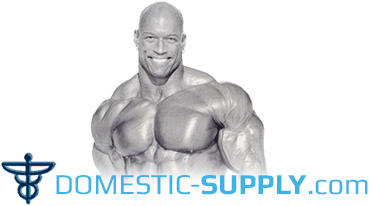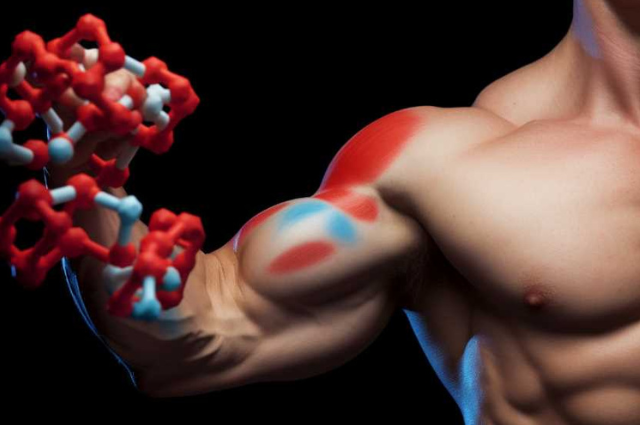Unveiling Long-Term Impacts of Anabolic Steroids: A Guide
'Unveiling Long-Term Impacts of Anabolic Steroids: A Guide' provides a comprehensive exploration of the enduring effects of anabolic steroid use.
The guide illuminates the scientific mechanisms of steroids, their physical implications, psychological repercussions, and widespread misuse in the athletic arena.
Additionally, it offers an overview of abuse patterns and reviews potential treatment options.
Finally, it underscores the importance of prevention and education in mitigating the misuse of these potent substances.
This guide serves as an invaluable resource for those seeking a profound understanding of the long-term impacts of anabolic steroids.
Key Takeaways
- Anabolic steroids are synthetic drugs that mimic the effects of testosterone and promote muscle growth and strength.
- Misuse of anabolic steroids can lead to serious health consequences, including cardiovascular diseases, liver damage, and skin side effects.
- Anabolic steroid use can have psychological consequences, such as mood swings and psychiatric disorders.
- Steroid use in sports can lead to physical health issues, mental health problems, performance decline, increased injury risk, and hormonal imbalances, while also compromising fair competition and tarnishing reputation.
Understanding Anabolic Steroids
Anabolic steroids, a class of synthetic drugs, mimic the effects of testosterone in the human body, promoting muscle growth and strength. These compounds are closely related to male sex hormones and have profound effects on the metabolic activities of cells and the overall development of the body. They increase the rate of protein synthesis within cells, which leads to the rapid buildup of cellular tissue, particularly in muscles.
Anabolic steroids come in a variety of forms and can be taken orally, injected, or applied as a topical cream or gel. The term 'anabolic' refers to the drug's muscle-building properties, while 'steroid' denotes its relation to the steroid group of compounds. This class of drugs was initially developed in the 1930s to treat hypogonadism, a condition in which the testes do not produce sufficient testosterone for normal growth, development, and sexual functioning.
However, the abuse of anabolic steroids has become prevalent among athletes and bodybuilders who use these substances to enhance physical performance and appearance. Despite their potential benefits, the misuse of anabolic steroids can lead to serious health consequences, including liver damage, cardiovascular diseases, and psychological disorders.
It is crucial to understand that anabolic steroids are not free from side effects. They can alter numerous bodily functions and cause long-term health issues. Therefore, these substances should be used judiciously and under the guidance of a healthcare provider. Widespread education and awareness about the potential risks associated with anabolic steroids are necessary to discourage misuse and promote safe practices.
The Science Behind Steroids
In examining the science behind steroids, it is essential to comprehend the three primary physiological mechanisms through which these substances exert their effects.
Firstly, anabolic steroids facilitate an increase in the body's nitrogen balance, resulting in a promotion of protein synthesis. This enhanced process is critical in the development of new muscle tissues.
Secondly, these substances stimulate the body's erythropoietin production, a hormone responsible for increasing the production of red blood cells. This mechanism enhances oxygen-carrying capacity, which benefits athletic performance by providing muscles with more oxygen during intense physical activity.
The third mechanism involves the alteration of the body's glucocorticoid system. Anabolic steroids work to suppress the catabolic effects of glucocorticoid hormones, preventing muscle breakdown and enabling quicker recovery from strenuous workouts.
Steroids essentially mimic the effects of testosterone, the primary male hormone, and are therefore capable of inducing specific male characteristics when used by women. They interact with androgen receptors located in various cells throughout the body, altering the function of these cells and leading to significant physiological changes.
However, it's important to note that the effectiveness and potential side effects of these substances can vary greatly depending on the specific type of steroid, the dosage, and the duration of use. Moreover, individual genetic factors can also play a significant role in determining the body's response to these substances.
Physical Effects of Long-Term Use
Considering the physiological mechanisms of anabolic steroids, long-term usage can lead to a range of physical effects that significantly alter the body's overall health status. Steroids are synthetic substances designed to mimic the body's natural production of testosterone. This artificial enhancement can initially result in increased muscle mass, strength, and endurance. However, over prolonged periods, the body may suffer adverse effects as it strives to maintain its natural equilibrium.
One of the most evident physical impacts is the development of cardiovascular diseases. Steroids increase low-density lipoprotein (LDL) cholesterol, the 'bad' cholesterol, and decrease high-density lipoprotein (HDL), the 'good' cholesterol. This imbalance can lead to an accumulation of cholesterol in the arteries, increasing the risk of heart attacks and strokes.
The hepatic system is also significantly affected. Steroids can induce liver tumors and cysts, leading to internal bleeding and even cancer. Moreover, the skin can exhibit acne, and in some cases, a yellowing condition known as jaundice.
In males, prolonged steroid use can lead to testicular atrophy, gynecomastia (development of breasts), and infertility. Women may experience masculinization, manifested as a deeper voice, menstrual irregularities, and increased body hair.
Psychological Consequences Explored
The psychological consequences of long-term anabolic steroid use present another significant factor that requires careful consideration. Anabolic steroids, synthetic derivatives of testosterone, not only affect the user's physical state but also significantly impact their psychological wellbeing. The breadth of these impacts ranges from mood alterations to severe psychiatric disorders.
Mood alterations are a common psychological consequence associated with long-term anabolic steroid use. Users often experience mood swings, characterized by episodes of euphoria, irritability, aggression, and even violent behaviour. These mood shifts can be unpredictable, leading to personal, professional, and social disruptions.
Moreover, psychiatric disorders like mania and hypomania have been reported in anabolic steroid users. Mania is a mental health disorder that causes periods of great excitement, euphoria, delusions, and overactivity, while hypomania is a milder form of mania. These conditions can lead to risky behaviour and impaired judgment, making users susceptible to potential harm.
Depression is another critical psychological consequence associated with steroid use. The sudden withdrawal from steroids can often lead to a severe depressive state that may last for several weeks or months. In severe cases, this can lead to suicidal thoughts or actions.
In conclusion, the psychological consequences of long-term anabolic steroid use are profound and multifaceted. They encompass a broad spectrum, from mood alterations to severe psychiatric disorders that can significantly impact an individual's quality of life.
As such, the psychological implications of anabolic steroid use necessitate further research and public awareness to mitigate their harmful effects.
Steroids and the Athletic World
An examination of the athletic world reveals a disturbing prevalence of anabolic steroids use, a phenomenon driven by the pressure to enhance performance despite the severe psychological consequences previously discussed. The competitive environment, the pursuit of physical perfection, and the desire for enhanced performance are factors that contribute to this alarming trend.
To paint a picture of this issue, let's examine the following critical aspects:
- Prevalence in Different Sports:
- Bodybuilding: Steroid use is significantly high in bodybuilding, where the pressure to attain an ideal physique drives athletes to compromise their health.
- Track and Field: Athletes often resort to steroids for improved speed and endurance.
- Baseball: Historically, numerous cases of steroid use have been revealed in this sport, indicating a deep-seated problem.
- Implications for Athletes' Health:
- Physical Health: Continual use of steroids leads to liver damage, cardiovascular issues, and hormone imbalance, among other severe health issues.
- Mental Health: As previously discussed, steroids can trigger severe psychological consequences, including mood disorders and addiction.
- Impact on the Integrity of Sports:
- Unfair Advantage: Steroid use creates an uneven playing field, undermining the principles of fair competition.
- Negative Role Modeling: Athletes, as public figures, influence younger generations. Their steroid use can unintentionally promote these harmful substances among aspiring athletes.
Steroid Abuse: An Overview
Delving deeper into the topic, we now turn our focus to the broader issue of steroid abuse, which encapsulates not only the athletic world but also impacts various other segments of society. Steroid abuse is a global health concern marked by the non-medical use of anabolic steroids, primarily to enhance physical appearance or performance.
Anabolic steroids, synthetic variations of the male sex hormone testosterone, have legitimate medical uses but are often misused. This misuse can lead to a range of negative physical, psychological, and social consequences. Physically, long-term steroid abuse can lead to cardiovascular diseases, liver damage, and hormonal imbalances. Psychologically, it may result in mood disorders, aggressive behavior, and addiction. Socially, it can cause relationship strain and occupational difficulties.
The prevalence of steroid abuse is notably high among athletes and bodybuilders due to the performance-enhancing effects of these drugs. However, it is not limited to these groups. Adolescents and young adults, driven by societal pressures and body image concerns, are increasingly becoming users.
Preventing steroid abuse necessitates a multi-faceted approach that includes public education, stringent regulatory measures, and targeted interventions. Early identification of at-risk individuals, comprehensive screening methods, and robust support systems are also crucial.
Treatment Options for Steroid Abuse
In addressing the menace of steroid abuse, it is essential to explore the available treatment options that can aid individuals in overcoming this form of substance misuse. These treatments are typically multi-faceted, combining medical interventions, psychological counseling, and behavioral modifications.
The treatment options can be broadly categorized into:
- Medical Detoxification and Medication
- Withdrawal from steroids can lead to severe depression and mood swings. Medical detoxification helps manage these symptoms safely.
- Medications such as antidepressants may be administered to manage depressive symptoms during withdrawal.
- Hormone therapies might be needed to restore natural hormone levels disrupted by prolonged steroid abuse.
- Behavioral Therapies
- Cognitive-behavioral therapy (CBT) can help individuals understand the triggers of their substance abuse and develop coping strategies.
- Contingency management (CM) provides incentives for staying drug-free, attending treatments regularly, and achieving recovery goals.
- Support Groups and Rehabilitation Programs
- Inpatient or outpatient rehabilitation programs provide structured treatment regimes and support to help individuals maintain abstinence.
- Peer support groups such as Narcotics Anonymous can provide a community of individuals with similar experiences, offering encouragement and motivation.
It's crucial to note that the best treatment approach varies depending on individual circumstances, the duration of steroid abuse, the presence of co-occurring mental health disorders, and the individual's commitment to recovery. Therefore, a comprehensive evaluation by a healthcare professional is necessary to tailor the treatment plan to the individual's unique needs.
Prevention and Education Strategies
Building on the importance of treatment, effective prevention and education strategies are critical in curbing steroid abuse and mitigating its long-term impacts. Key stakeholders in this fight include healthcare providers, educators, coaches, and parents, who play a significant role in identifying at-risk individuals and promoting steroid-free environments.
Education initiatives should focus both on the dangers of steroid misuse and the benefits of natural, healthy alternatives. This includes teaching about the harmful physiological and psychological effects of anabolic steroids, such as liver damage, cardiovascular disease, mood disorders, and stunted growth in adolescents. Moreover, highlighting the benefits of regular exercise, balanced nutrition, and adequate rest can offer a compelling narrative against steroid use.
Prevention strategies should be multidimensional and context-specific. For instance, in sports settings, strict anti-doping regulations and regular drug tests can deter athletes from resorting to steroids. Schools and universities should incorporate drug education into their curricula and provide counselling services for students dealing with body image or performance pressures. In clinical settings, doctors should screen for steroid use, particularly in patients with signs of rapid muscle gain, acne, or emotional instability.
Finally, fostering a culture that values health and well-being over superficial physical attributes can help in reducing societal pressures that often drive individuals towards steroid use. This can be achieved through public campaigns, role models promoting clean sports, and media literacy programs that critically examine the portrayal of body ideals in popular culture.
Through a comprehensive and multifaceted approach, it is possible to reduce the prevalence and long-term impacts of anabolic steroid abuse.
Frequently Asked Questions
Is There Any Legal Use for Anabolic Steroids in the Medical Field?
Yes, anabolic steroids have legitimate medical uses. They are often prescribed by healthcare professionals to treat conditions like delayed puberty, muscle loss due to disease, and certain types of anemia.
They work by mimicking the effects of testosterone in the body, which can help promote muscle growth and development.
However, they should be used under a doctor's supervision due to potential side effects and the risk of misuse.
How Are Anabolic Steroids Ingested or Administered in the Body?
Anabolic steroids can be administered into the body in three ways: orally, by injection, or through the skin.
Oral ingestion is through tablets or capsules.
Injectable steroids are delivered via intramuscular injection.
Transdermal application involves creams, gels, or patches applied to the skin.
The method of administration is often dependent on the prescribed medical purpose and each method carries its own potential for side effects and complications.
What Is the Typical Age and Demographic of Anabolic Steroid Users?
Anabolic steroid users typically fall within the age range of late teens to mid-30s. The demographic predominantly comprises males, particularly those involved in sports or bodybuilding. However, usage is not limited to this group.
It's also seen among females and older individuals seeking physical enhancement or anti-aging effects. Notably, steroid use is widespread across various socio-economic classes, illustrating a broad demographic reach.
Are There Alternative Substances to Anabolic Steroids That Athletes Could Safely Use to Enhance Performance?
Yes, there are safer alternatives to anabolic steroids that athletes can use to enhance performance.
These include creatine and branched-chain amino acids (BCAAs), which are both natural supplements.
Creatine can improve strength and power, while BCAAs can promote muscle growth and recovery.
However, it's important for athletes to consult with a healthcare professional before starting any new supplement regimen to ensure safety and effectiveness.
What Are the Signs That a Loved One Could Be Abusing Anabolic Steroids?
Signs of anabolic steroid abuse can include:
- Rapid muscle gain
- Mood swings
- Acne
- Unusual hair growth or loss
More serious symptoms may involve:
- Changes in heart rate or blood pressure
- Increased aggression
- Depression
- In some cases, jaundice
Behavioral changes, like:
- Increased secrecy
- Sudden obsession with physical appearance and diet
These may also indicate abuse. It's crucial to seek medical advice if suspected, as steroid abuse can lead to long-term health issues.
Conclusion
In conclusion, the detrimental long-term impacts of anabolic steroids are substantial, affecting both physical and psychological health.
The pervasive use in athletics exacerbates the issue, necessitating comprehensive strategies to combat steroid abuse.
Addressing this issue requires holistic approaches including effective treatment options and robust educational initiatives.
An understanding and awareness of these consequences is imperative for fostering a healthier and safer environment, particularly in the world of sports.







